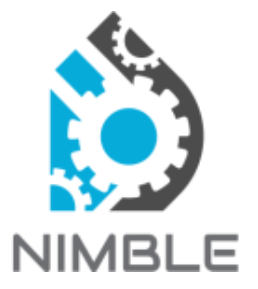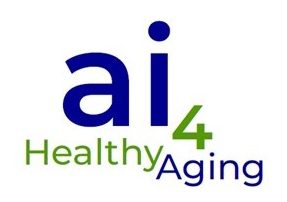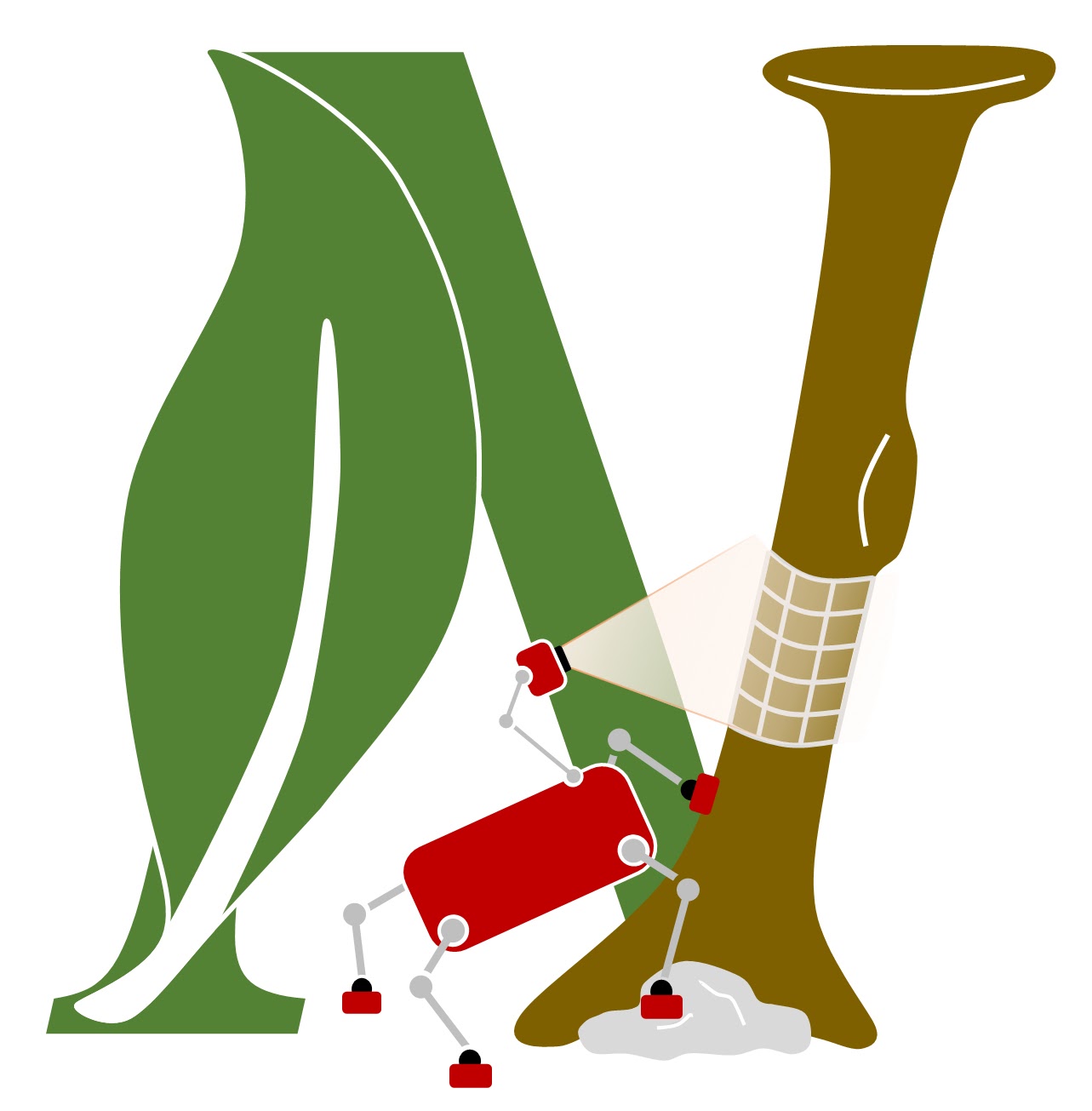Ongoing Projects
 |
IND2023/TIC-27513
Investigación de la estimulación eléctrica funcional durante el pedaleo para personas con lesiones de médula espinal y daño cerebral. Dates: From 2023-11-23 to 2026-11-22 Principal Investigator: Juan C. Moreno Funded by Comunidad de Madrid. Convocatoria de Ayudas destinadas a la realización de doctorados industriales 2023. Referencia: IND2023/TIC-27513 |
 |
IND2022/TIC-23606
Desarrollo de sistema de electroestimulación muscular modular y distribuido de uso clínico para estudio de efectos de corrientes eléctricas aplicadas en el sistema neuromuscular Dates: From 2023-04-01 to 2026-03-31 Principal Investigator:Juan C. Moreno Funded by Comunidad de Madrid. Convocatoria de Ayudas destinadas a la realización de doctorados industriales 2022. Referencia: IND2022/TIC-23606 |
 |
IND2022/TIC-23636
Desarrollo, evaluación y mejora de las interfaces físicas entre exoesqueletos robóticos y cuerpo humano Dates: From 2023-2026 Principal Investigator:Diego Torricelli Funded by Comunidad de Madrid. Convocatoria de Ayudas destinadas a la realización de doctorados industriales 2022. Referencia: IND2022/TIC-23636 |
| FUSION network
Thematic network on Fusion of Wearable Robots and Neuro-Muscular Electrical Stimulation for Neural Rehabilitation of Movement Disorders. Dates: From 2023-06-01 to 2025-05-31 FUSION thematic network proposes the promotion of synergies with research groups to work on priority themes to achieve modular neurorehabilitation robots to establish their proper fusion with electrical stimulation modalities, and to conceive good practices and guidelines for their personalization and deployment in the treatment of neurological disorders. Principal Investigator:Juan C. Moreno Funded by Ministerio de Ciencia e Innovación – Agencia Estatal de Investigación in the framework of the call “Ayudas 2022 a «REDES DE INVESTIGACIÓN» en el marco del Programa Estatal para Impulsar la Investigación Científico-Técnica y su Transferencia, del Plan Estatal de Investigación Científica, Técnica y de Innovación 2021-2023”. Referencia: RED2022-134319-T |
 |
NIMBLE
Assessing and modeling the mechanisms of recovery during robot aided neurorehabilitation of walking. Dates: From 2022-09-01 to 2025-08-31 Lab: Human Locomotion Laboratory NIMBLE aims at improving current robotic exoskeletons for walking rehabilitation developing a novel modeling-based optimization framework to promote neuroplasticity with novel tools for control and management of the longitudinal robotic treatment. These computational tools will be derived from pervasive monitoring, longitudinal investigation of the evolution of the therapy and statistical models of the neurorehabilitation process. Besides, computational methods for neuromusculoskeletal simulations will be developed to investigate, generate and test novel datasets used as control reference for the robotic controllers. NIMBLE will put in place a required research strategy that will put emphasis on gaining a better understanding of the mechanisms of neuroplasticity, to determine how to reliably induce and exploit it to maximize therapeutic outcomes. Principal Investigator:Juan C. Moreno Funded by Ministerio de Ciencia e Innovación; Agencia Estatal de Investigación. Referencia: PID2021-123657OB-C31 |
 |
AI4HealthyAging
IA para el diagnóstico y tratamiento temprano de enfermedades con gran prevalencia en envejecimiento Dates: From 2021-08-04 to 2024-12-31 Labs: Neural Interfaces and Enhancement Lab, Neuromuscular Coordination Laboratory and Human Locomotion Laboratory El presente proyecto se enmarca en el Programa Misiones de I+D en Inteligencia Artificial 2021, en el marco de la Agenda España Digital 2025 y de la Estrategia Nacional de Inteligencia Artificial («extracto en BOE» núm. 152, de 26 de junio de 2021). El objetivo es contribuir a una de las 5 misiones identificados en la convocatoria, en concreto a la misión de la salud. Principal Investigators: Diego Torricelli and Juan C. Moreno Funded by Ministerio de Asuntos Económicos y Transformación Digital; Plan de Recuperación, Transformación y Resiliencia; Unión Europea Next Generation EU. Referencia: MIA.2021.M02.0007 |
| NEUROMARK
Biomarcadores neuromecánicos para cuantificar la gravedad de la enfermedad de Parkinson utilizando sensores vestibles Dates: From 2021-09-01 to 2024-08-31 Labs: Neuromuscular Coordination Laboratory We propose the combination of different technologies to generate the necessary body of evidence to deeply understand the motor symptoms of PD under a multi-faceted perspective. In particular, our methodology includes the application of machine learning algorithms on kinematic and neuromuscular data recorded by IMUs and surface electromyography (EMG), during a battery of tests composed of exercises replicating daily-life activities.Together with a pool of clinicians, we aim to combine these data with intuitive graphical interfaces, in order to create clinically-relevant biomarker of disease progression. Our secondary goal is to create an experimental and methodological platform for novel investigations on the complexity and adaptability of the neuromotor system, also applicable to other neurological diseases, such as stroke, spinal cord injury or cerebral palsy. Principal Investigators: Diego Torricelli Funded by MINISTERIO DE CIENCIA E INNOVACION. Programa Estatal de I+D+i Orientada a los Retos de la Sociedad Referencia: PID2020-120491RA-I00 |
 |
NI
Natural Intelligence for Robotic Monitoring of Habitats Dates: From 2021-01-01 to 2024-03-31 Lab: Neuromuscular Coordination Laboratory Global warming and pollution are threatening the survival of one million over the eight million species in forests and oceans on the planet. The EU answer to these challenges is the set of deeply transformative policies contained in the European Green Deal. Among these policies a prominent role is given to the restoring and preservation of ecosystems by increasing the coverage of protected biodiversity-rich land and sea areas building on the Natura 2000 network. Stretching over 18% of the EU’s land area and almost 6% of its marine territory, Natura 2000 is the largest coordinated network of protected areas in the world. The land and sea coverage will be increased up to 30% within 2030. Today human operators are the only option to perform the environmental monitoring of such a large area. This is not only because of their specific expertise and knowledge in classifying plants and habitats but also because their physical intelligence allowing them to move for hours in wild unstructured environments such dunes, forests, and mountains. The artificial alternative is robotics, which made tremendous advancements in recent years, however robots hardly leave laboratories and factories because they are not robust and efficient to survive in the real world. Flying robots do not have the required energy autonomy, while ground robots are not: i) intelligent to autonomously percept, interpret, and interact with highly uneven, slipping and irregular grounds, ii) physically robust to manage unexpected contacts and impacts. The Natural Intelligence (NI) project aims to serve the European Green Deal via monitoring the natural habitats of N2000N with robots able to effectively move in dunes, grasslands, forests, and alpine terrains. NI robots will be empowered by Natural Intelligence, emerging by the interaction of environment, body and mind, leveraging on the fusion of artificial cognition and articulated soft-robotics bodies. Principal Investigator: Diego Torricelli Funded by H2020-EU.2.1.1 (Ref.: 101016970) |
 |
IND2020/TIC-17471
Desarrollo de sistema de electroestimulación muscular modular y distribuido de uso clínico para estudio de efectos de corrientes eléctricas aplicadas en el sistema neuromuscular Dates: From 2021-01-12 to 2024-01-11 Principal Investigator:Juan C. Moreno Funded by Comunidad de Madrid. Convocatoria de Ayudas destinadas a la realización de doctorados industriales 2020. Referencia: IND2020/TIC-17471 |
| PTI+NeuroAging
Rehabilitación basada en robótica Dates: From 2021-04-15 to 2022-12-31 Lab: Human Locomotion Laboratory Principal Investigator: Juan C. Moreno Funded by Mecanismo de Recuperación y Resiliencia de la Unión Europea |
